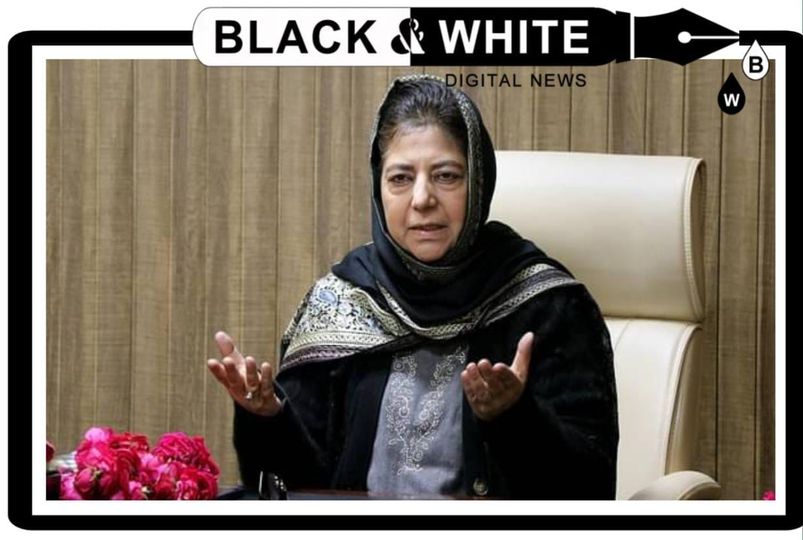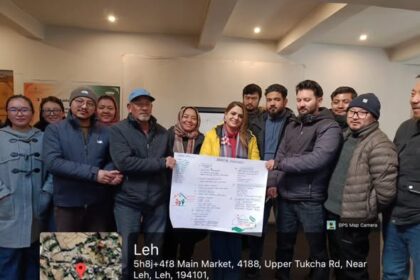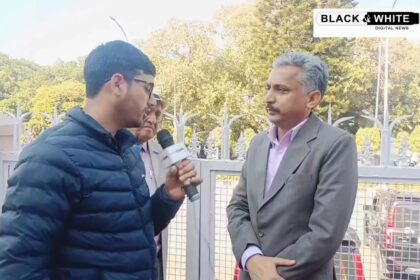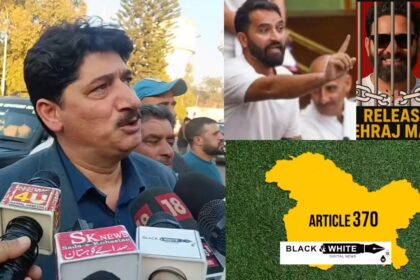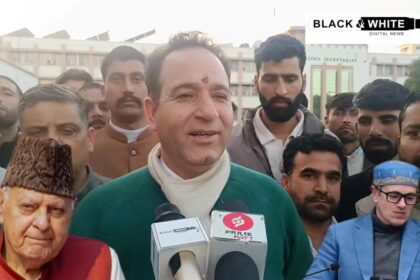||Black and White Digital News ||
||Parvinder Singh June 29, 2024||
Srinagar : In a fervent critique of the Modi government’s recent measures in Jammu and Kashmir, former Chief Minister Mehbooba Mufti has raised alarm over the revival of archaic laws to address security concerns, asserting that such actions trample on the rights of the region’s citizens. Mufti’s remarks came in response to a statement by Jammu and Kashmir Director General of Police, R.R. Swain, who declared that locals supporting foreign terrorists would be prosecuted under the harsh Enemy Agents Ordinance, a law dating back to the Maharaja’s era, which supersedes the already stringent Unlawful Activities Act.
Mufti’s denunciation of these laws highlights the growing tension between maintaining security and upholding human rights in a region fraught with conflict. “These archaic laws violate human rights and the punishments accompanying them are grossly incompatible with the principles and values of justice enshrined in the Constitution,” Mufti proclaimed, urging a reconsideration of such draconian measures.
The controversial decision to invoke the Enemy Agents Ordinance has sparked widespread concern and debate. The ordinance, originally implemented during the reign of the Maharaja, imposes severe penalties on individuals suspected of aiding and abetting militants. Mufti took to social media to voice her discontent, describing the move as a major breach of justice. “Jammu Kashmir police’s recent decision of invoking the draconian Enemy Ordinance Act from the Maharaja’s era against its own citizens on mere suspicion of abetting & aiding militants isn’t only deeply concerning but a major breach of justice,” she posted on X.
The arrest of Mian Qayoom, a prominent lawyer and former president of the Jammu and Kashmir High Court Bar Association, has further intensified the situation. Qayoom was detained on Tuesday, coinciding with the authorities’ decision to ban elections for the Bar Association. The elections were prohibited on the grounds of the association not being registered with the competent authority and apprehensions of potential unrest.
Iltija Mufti, Mehbooba Mufti’s daughter, also weighed in on the issue, accusing the BJP of punishing Kashmiris for their political choices. “This sudden slew of repressive actions is also to punish Kashmiris for exercising their right to vote to wholeheartedly reject Delhi’s illegal revocation of J&K’s special status as well as its deeply disliked proxy parties,” she alleged.
Iltija’s remarks underscore the broader political context in which these actions are unfolding. “What does J&K admin’s recent decision of arresting Mian Qayoom, banning JK High Court Bar Association elections, and @JmuKmrPolice invoking a draconian law from the erstwhile Maharaja’s era tell you? That even after losing its brute majority, there will be little change in BJP’s policy vis-à-vis Kashmir,” she posted on X.
The Modi government’s approach in Jammu and Kashmir, particularly its use of historical laws with severe implications, has ignited a significant controversy. The tension between ensuring security and preserving human rights remains a delicate balance. As the region grapples with these contentious decisions, voices like those of Mehbooba Mufti and Iltija Mufti highlight the need for a nuanced and just approach that respects the constitutional rights of all citizens while addressing legitimate security concerns.
In the shadow of these developments, the call for justice and the preservation of human rights in Jammu and Kashmir continues to resonate, urging policymakers to reconsider measures that may infringe upon the freedoms and rights of the people they aim to protect.
Leave a comment
You Might Also Like
Implementation of Rural Development Schemes Concludes at Leh
Implementation of Rural Development Schemes Concludes at Leh Leh, February 07, 2026: The three-day State-Level Training Programme on Effective Implementation…
2 Min Read
Article 370 Aub Tak Revoke Nahi.Huva Hai Jis Din Revoke Hoga Us Din Jammu Kashmir Hindustan Se Alag Hojayega MLA Budhal Javed Choudhary
Article 370 Aub Tak Revoke Nahi.Huva Hai Jis Din Revoke Hoga Us Din Jammu Kashmir Hindustan Se Alag Hojayega MLA…
0 Min Read
Mehraj Malik K Liye Bolte Waqt Me Emotional Hogya Mla Hilal Lone
Mehraj Malik K Liye Bolte Waqt Me Emotional Hogya Mla Hilal Lone
0 Min Read
Hum Kashmiri Logon K Dushman Hai Ya Humdard Yeh Hume NC Se Certificate Lene Ki Zarurat Nahi Hai LOP Sunil Sharma
Hum Kashmiri Logon K Dushman Hai Ya Humdard Yeh Hume NC Se Certificate Lene Ki Zarurat Nahi Hai LOP Sunil…
0 Min Read

